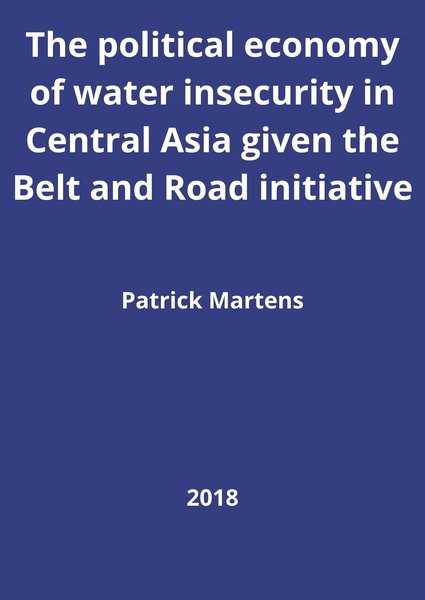




Year: 2018
Collections: Scientific Publications
Topics: Water, Sustainable Development
Authors: Martens Patrick
Countries: Kazakhstan, Kyrgyzstan, Uzbekistan, Tajikistan, Turkmenistan
Source: Central Asian Journal of Water Research
Downloads:
Central Asia is an integral part of the Belt and Road (B&R) initiative and the management of water resources is a critical issue in the region. Recently China has become more active in pursuing its economic and political interests in the Eurasian landmass and its expansionist drive has received much attention in the academic literature, which informs this article. The success or failure of the B&R is intertwined with the political economy of water in Central Asia and the purpose of this paper is to demonstrate the central importance of water, given the recent history, to such an ambitious economic initiative. The design of the paper is to firstly to traverse the literature and academic debate on Chinese motives and intentions and how they can impact on upstream and downstream water issues. Then water issues and water governance will be examined considering particularly available evidence of Chinese project experiences in B&R countries, the inter-country geopolitical situation in Central Asia and the recent history of environmentally rooted conflict in the region. The methodology broadly follows a systems approach, meaning that understanding is obtained by giving attention to the interacting sub-systems: the political, economic, geographical, social and environmental factors in the context of recent history and the literature on Chinese intentions and motivations. The main conclusions are that the B&R initiative, while offering economic development promise, contains inherent risks of conflict and project failure, particularly in the context of existing and potential water conflicts. Improved trans-boundary governance–especially regarding trans-boundary river systems, stakeholder engagement and effective project management will be required. It is intended that the arguments will resonate with decision-makers and project designers.
По всем вопросам сотрудничества обращайтесь по эл.адресу или телефону: